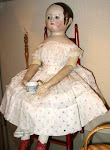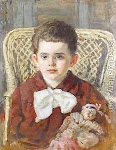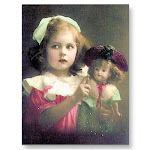 "Ow, wouldn't it be loverly...!"
"Ow, wouldn't it be loverly...!"
 Après l’averse; - place du Théâtre-Français... Louis Marie de Schryver
Après l’averse; - place du Théâtre-Français... Louis Marie de Schryver

 In Dublin's fair city,where the girls are so pretty,I first set my eyes on sweet Molly Malone, as she wheeled her wheel-barrow, through streets broad and narrow...Crying, "Cockles and Mussels, alive, alive, oh!"
In Dublin's fair city,where the girls are so pretty,I first set my eyes on sweet Molly Malone, as she wheeled her wheel-barrow, through streets broad and narrow...Crying, "Cockles and Mussels, alive, alive, oh!"Parisian Flower Vendors
 The term "pedlar "was mostly used for travellers hawking goods in the countryside to small towns and villages; they might also be called tinkers or gypsies.
The term "pedlar "was mostly used for travellers hawking goods in the countryside to small towns and villages; they might also be called tinkers or gypsies.Peddlers usually travelled by foot, carrying their wares, or by means of a person- or animal-drawn cart or wagon (making the peddler a hawker).
 "One bite, and all your dreams will come true. "
"One bite, and all your dreams will come true. "Queen: "Yes, but wait 'till you taste one, dearie. Like to try one? Go on. Go on, have a bite."
The term...“Topping off” meant arranging lovely fresh apples or cherries or strawberries atop a basket full of overripe fruits and lots of leaves. The practice was so typical, it was taken for granted.
 Grimm's Fairy Tales... "Queen thou' art' of beauty rare. But Snow White living in the glen is' a thousand' times more fair."
Grimm's Fairy Tales... "Queen thou' art' of beauty rare. But Snow White living in the glen is' a thousand' times more fair."When young women heard the cries of “What is’t you lack?” or “What is’t you buy?” They rushed to greet the pedlar with anticipation of the treasures of ribbons, laces and books to be found in his baskets, as well as news, and fresh ideas of the world outside the village.
 In the eighteenth century, women traveled about the countryside as pack peddlers selling needles, pins, and other small articles. These women were called Notion Nannies, and were familiar figures in English country districts.
In the eighteenth century, women traveled about the countryside as pack peddlers selling needles, pins, and other small articles. These women were called Notion Nannies, and were familiar figures in English country districts.
 In a period were people living in the country were often isolated from the influence of a town, a pedlar was viewed with excitement…
In a period were people living in the country were often isolated from the influence of a town, a pedlar was viewed with excitement…
 "Will you buy my sweet primroses,..two bunches a-penny? All a-growing, all a-blowing, who will buy my sweet primroses...Two bunches a-penny."
"Will you buy my sweet primroses,..two bunches a-penny? All a-growing, all a-blowing, who will buy my sweet primroses...Two bunches a-penny."
Often Children were taken along, so they could learn the trade firsthand. "Ripe Strawberries ripe, Ripe Strawberries ripe. Six-pence a pottle fine strawberries ripe strawberries...only six-pence a pottle... I have ripe Strawberries ripe, Ripe Strawberries ripe."
"Ripe Strawberries ripe, Ripe Strawberries ripe. Six-pence a pottle fine strawberries ripe strawberries...only six-pence a pottle... I have ripe Strawberries ripe, Ripe Strawberries ripe."
 Though pedlars were welcomed for the frivolities they brought, they were distrusted, and they had a reputation of stealing while the ladies were busily looking through their wares.
Though pedlars were welcomed for the frivolities they brought, they were distrusted, and they had a reputation of stealing while the ladies were busily looking through their wares.
 The evenings were spent in country inns,where peddler’s wives would make caps and frills to sell the next day, and the dishonest pedlar would dispose of the trifles picked up on the journey.
The evenings were spent in country inns,where peddler’s wives would make caps and frills to sell the next day, and the dishonest pedlar would dispose of the trifles picked up on the journey.


 In the eighteenth century, women traveled about the countryside as pack peddlers selling needles, pins, and other small articles. These women were called Notion Nannies, and were familiar figures in English country districts.
In the eighteenth century, women traveled about the countryside as pack peddlers selling needles, pins, and other small articles. These women were called Notion Nannies, and were familiar figures in English country districts. In a period were people living in the country were often isolated from the influence of a town, a pedlar was viewed with excitement…
In a period were people living in the country were often isolated from the influence of a town, a pedlar was viewed with excitement… "Will you buy my sweet primroses,..two bunches a-penny? All a-growing, all a-blowing, who will buy my sweet primroses...Two bunches a-penny."
"Will you buy my sweet primroses,..two bunches a-penny? All a-growing, all a-blowing, who will buy my sweet primroses...Two bunches a-penny."Often Children were taken along, so they could learn the trade firsthand.
 "Ripe Strawberries ripe, Ripe Strawberries ripe. Six-pence a pottle fine strawberries ripe strawberries...only six-pence a pottle... I have ripe Strawberries ripe, Ripe Strawberries ripe."
"Ripe Strawberries ripe, Ripe Strawberries ripe. Six-pence a pottle fine strawberries ripe strawberries...only six-pence a pottle... I have ripe Strawberries ripe, Ripe Strawberries ripe." Though pedlars were welcomed for the frivolities they brought, they were distrusted, and they had a reputation of stealing while the ladies were busily looking through their wares.
Though pedlars were welcomed for the frivolities they brought, they were distrusted, and they had a reputation of stealing while the ladies were busily looking through their wares. The evenings were spent in country inns,where peddler’s wives would make caps and frills to sell the next day, and the dishonest pedlar would dispose of the trifles picked up on the journey.
The evenings were spent in country inns,where peddler’s wives would make caps and frills to sell the next day, and the dishonest pedlar would dispose of the trifles picked up on the journey.

Street vendors in mid-19th-century London were accused, often rightly so, of all sorts of bad behavior. In their own defense, the vendors claimed that it was such a difficult way to make a living that they had to cheat to survive. In an effort to protect householders, the pedlars were required to carry a certificate of good character signed by a clergyman. After 1810 a license was issued with card stating “Licensed Hawker and Dealer in Small Wares” .













































.jpg)






































































So interesting post, Marta! Thanks for sharing!
ReplyDeleteYour informative post reminds me of the "itinerant" peddlers of early America, wherein most tinware was purportedly sold. I learned of this years ago when taking tole painting on country tin. I treasure and revere this art form, and therefore have always thought highly of the peddlers. It's sad that one who could let us do a little shopping would be thought in an ill light, but if they stole and cheated, so be it.
ReplyDeleteI love the term "notion nanny"! And what a kick seeing the Norman Rockwell Peddler wearing his hat a la Minnie Pearl!
Thank you Christine. I have very fond memories of peddlers from my home in Cuba. I will never forget the beautiful songs of the "Pregones". very similar to the "London Cries". Peddlers selling sweet oranges from China, Peanut vendors, and all kinds of candies and ices...I suppose the bad apples fall in the category of Highway men and robbers, at a time in 18th and early 19th century poverty was a part of life, especially in the more rural areas. I believe these were the exception more than the rule. I, like you, have a fondness for the custom, and the dolls that portray them.
ReplyDeleteI just have to make a peddlar doll now! I am on the hunt for miniature treasures for sure, Judi
ReplyDeleteJudi..you are too funny! Thanks for your sweet comment :-)
ReplyDeleteLove
Marta
Great post. Wonderful illustrations.
ReplyDeleteThank you!...I really appreciate yout thoughts.
ReplyDeleteHugs!